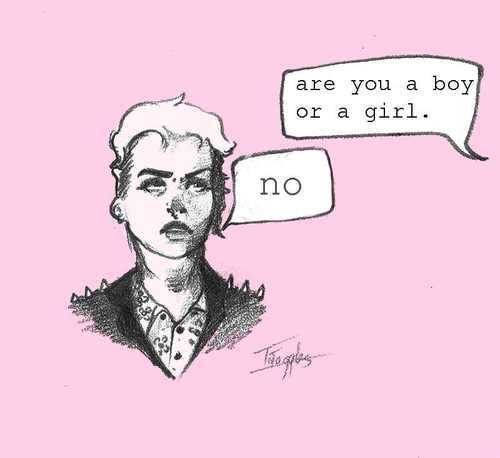Should We Have Gender Neutral Pronouns?

the-unpopular-opinions.tumblr.com
August 27, 2014
For a society that prides itself on its innovation and ability to push for change, it’s rather ironic that we are struggling to address some of the simplest to solve problems. Nonetheless, we have made considerable leaps and bounds regarding prominent social issues—from the eradication of segregation to the push for women to serve on the front lines. Regardless of the prior progress that has been achieved, the prevalent issues the LGBT community has to deal with are very relevant.
Since 2003, 19 states have legalized gay marriage, and hopefully more will follow suit in the near future. Gay couples now have the right to have their unions recognized by the government and have the opportunity to receive benefits, insurance, and other perks that were once only available to heterosexual couples. More and more support for gay youth has rallied, and people once afraid to be who they are can finally feel comfortable with themselves and not be concerned for their well being. This wonderful change took plenty of hard work, dedication, effort and sacrifice on the parts of many. Although challenging, the movement has expanded and will undoubtedly continue to strengthen.
Concurrently, the push for non-binary gender recognition, acceptance and equality has been an equally important, but less recognized issue. A non-binary gender is a gender identity that doesn’t conform to the conventional male/female model. There is a wide spectrum of non-binary genders and identities, none of which align to the original method. Some of these identities include, but are not limited to: transgender, agender, bigender and androgyne. People not of the typical binary genders struggle to create an identity and often times our traditional system gets in the way of their ability to express themselves. One way our customs oppress this demographic is through the lack of acknowledgement for this group in the English language; in particular pronouns. We currently have nothing to represent people who don’t identify as men or women unless we use the rather derogatory “it.”
There are mixed opinions on the idea of assimilating gender neutral colloquialisms into our language. Some people find it strange, others may have religious justification, and then there are those who just don’t think implementing these words matters. It might be strange at first to have to revamp your vocabulary, and it would probably take some getting used to, but I’m all for the creation of these non-binary pronouns. I think that it’s important for everyone to be comfortable in their own skin, and if that means I have to alter my vernacular, then so be it. Why should I deny anyone of something so simple? As trivial as it may seem, these words are a part of your identity, whether you are a he, a she or somewhere in between. Denying someone an element of their identity just because they don’t adhere to the traditional system is asinine. We’re all equal and our language should be a reflection of that.


